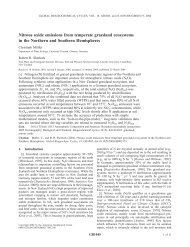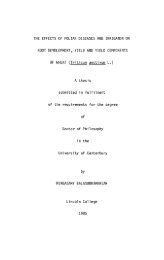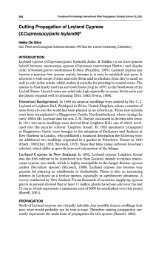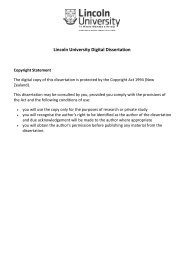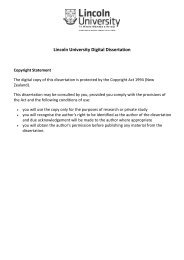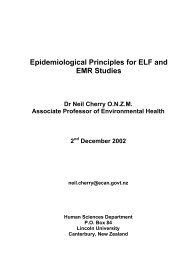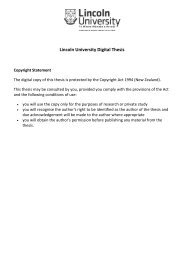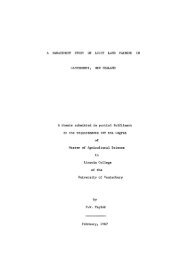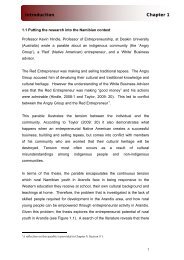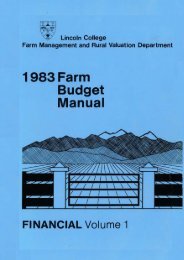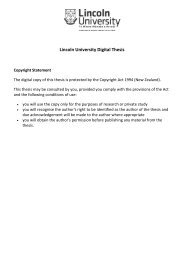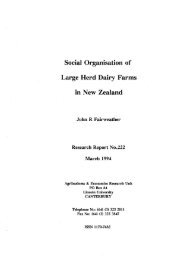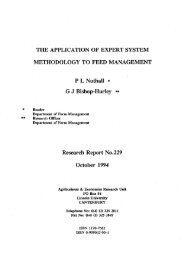Lincoln University Digital Dissertation - Lincoln University Research ...
Lincoln University Digital Dissertation - Lincoln University Research ...
Lincoln University Digital Dissertation - Lincoln University Research ...
You also want an ePaper? Increase the reach of your titles
YUMPU automatically turns print PDFs into web optimized ePapers that Google loves.
“We have grown them [taewa] for many, many years and we grow them on a<br />
bigger scale than they used to be. Back in those days you might have half a<br />
dozen rows but nowadays you might have ten rows. To me this is 2007, not<br />
1807 and you move with the times. If this knowledge and technology of 2007<br />
is going to help us to get a better crop [and] make for easier work these things<br />
are advantageous for us, you take advantage of this. Although a lot of people<br />
are against spraying and that sort of stuff - organic or not. To me, if I can<br />
spray something that will kill the bugs for me and give me a reasonable<br />
crop… a man’s silly if he doesn’t use some of this modern technology in my<br />
view… They [ancestors] looked for new knowledge to help and enhance what<br />
they were doing because your population was getting greater you were able<br />
to sustain them because your knowledge advanced… you know if the<br />
population in your hapu [sub-tribe] moved by a couple of hundred people say,<br />
well you had to have enough coming out of your mara [garden] to sustain<br />
them until next season. And so by using new technology and in this modern<br />
age it’s the same thing.” (Grower 2)<br />
Traditional Maori values are derived from whakapapa. They are holistic, and<br />
provide a means for Maori to experience and interpret their environment,<br />
strongly influencing aspirations of well-being. Appreciating this holistic nature<br />
means that values may be anything – physical, spiritual, conceptual – that<br />
Maori attach importance to. In relation to land, tikanga determines how crops<br />
are managed and how particular resources are harvested or conserved. While<br />
horticultural practices related to taewa cultivation have adapted and<br />
modernised, traditional values have remained a significant part of, and are<br />
reinforced by taewa production.<br />
4.6 Manaakitanga<br />
Aroha mai, aroha atu<br />
Love received, love returned<br />
Manaakitanga is a particularly strong influence in Maori society and can not<br />
be underestimated. It reflects aspects of everyday life portrayed through<br />
45



